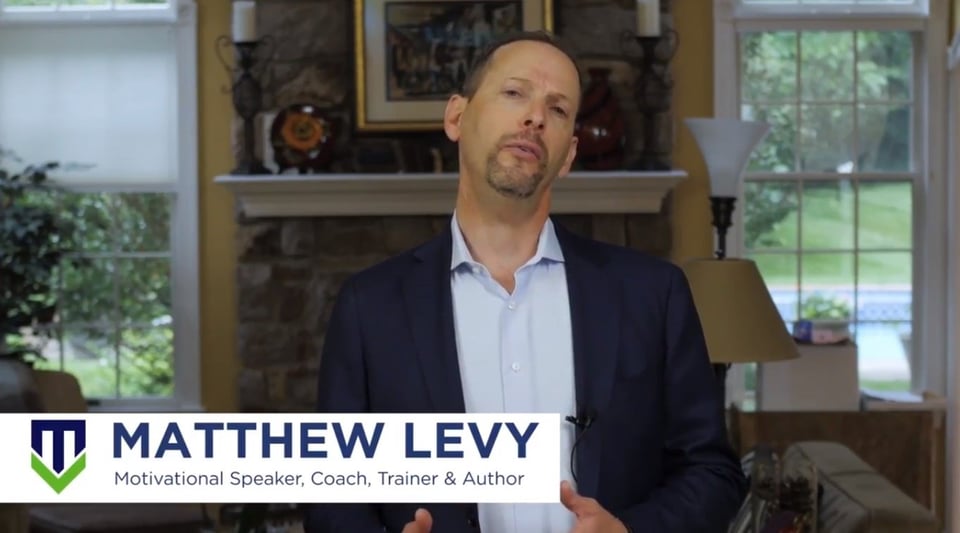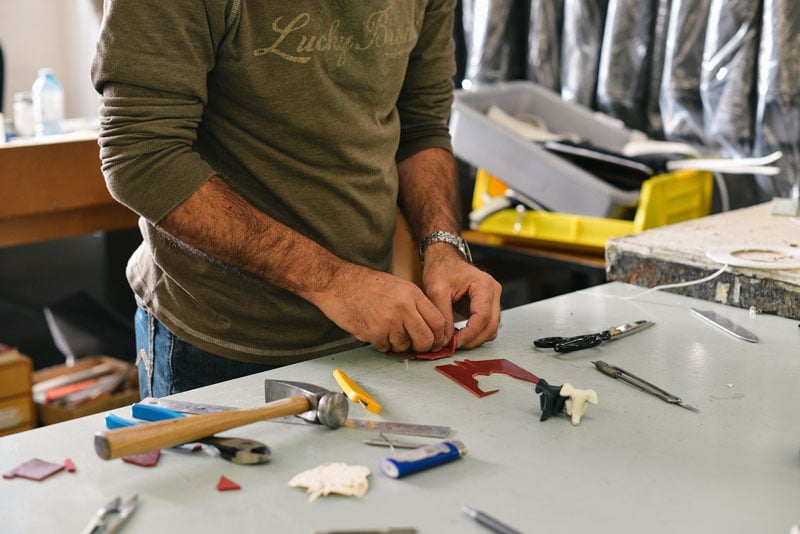Aha moments of entrepreneurs are legendary, so too are the tales of rags-to-riches. These are the stories that inspire, motivate, and drive innovation. These are stories that move dreamers to doers. These are the stories that are remembered.
These stories of success are rivaled in number by stories of failure. Stories of failure used to be swept under the rug. However, start-up postmortems have become a seemingly requisite part of failure. Reading through these autopsies is disheartening. There are only so many times that one can read the phrase: “And yet, we failed,” without getting discouraged.
The stark reality is that failure is far more common than success. While the success rate varies by industry, on average, 25% of start-ups fail in year one, 36% in year two, and 44% of start-ups fail within their third year.
Given the high rate of failure, and given the multitude of heart-wrenching failure postmortems, is it even worth making a go of it? Yes. Why? Jonathan Long, Founder and CEO of Market Domination Media, puts it well: “Because if you don’t, you are going to regret it and you might be passing on a truly amazing experience.”
But…before you decide to “follow your passion,” know that passion alone will not drive success. Recent research out of Rice University found that passion has nothing to do with results. Daniel Isenberg, Professor at Babson College, also cautions against launching a venture founded within passion. The place for passion, Isenberg argues, is “in the bedroom.”
Launch a Profitable Business
Preparedness
The research conducted by Rice University found that preparedness is what is critical to success. The researchers found that founders who had “fully fleshed out their ideas, gained a deep understanding of their markets, and created plans for overcoming obstacles and exploiting contingencies,” were the ones who had ventures that were successful.
 Honesty
Honesty
More often than not, entrepreneurs fall into the trap of confusing praise for success and for surrounding themselves only with their supporters. “Cold-shower-self-honesty,” Isenberg notes, is a valuable commodity for success.
Mark Suster, two-time entrepreneur turned VC, has a similar sentiment:
“I want to talk about Kool Aid. Yours. Don’t drink it. I know you’re thinking that you have your head on straight but I promise you the experience of finding yourself in this maelstrom will leave any first time entrepreneur spinning. Fame and adoration corrupts first timers. And if you’re not careful you might start to believe your own hype.”
A profitable business is based on humility, focus, and a lack of Kool-Aid.
Time
We all have 24 hours in a day and 168 hours in a week. Entrepreneurs tend to be known for forgoing life and family for their venture and for working 24 hours a day, seven days a week.
But is this the key to success? Arguably not. Performance Consultant, Speaker and Award-Winning Author, John Brubaker, notes that “For entrepreneurs, the law of diminishing returns refers to the point where the profit gained is less than the amount of energy invested.” That is, that there is a point where sacrificing personal time and putting business ahead of everything else is harmful.
It is also not smart. Freek Vermeulen, Associate Professor of Strategy and Entrepreneurship at the London Business School, points out that being “very busy all the time is actually a bit of problem.” The issue: “It means that you don’t have much time to think and reflect. And thinking is in fact quite an important activity when it comes to assessing and developing a strategy.”
Vermeulen points to successful entrepreneurs including Warren Buffett and Bill Gates who insist on prioritizing time to think.
Another thing to think about – Parkinson’s Law. Parkinson’s Law is the adage that "work expands so as to fill the time available for its completion". In short – “Work less, and you’ll tend to work better.”
As a business owner, there are several ways to save time so that you can focus on what is most important. Make sure you leverage yourself and master the clock.
Game plan
Remember those 24 in a day? According to Brubaker, “The difference between you achieving your goals and someone else achieving theirs isn’t money, location, talent or connections, it’s the investment of time. The playing field is level, because everyone is given the same 168 hours in a week and the same 24 hours in day. Your competitive advantage is how your use them.”
Whether or not you choose to use Brubaker’s daily game plan to schedule and invest your time, stick with the principles – including family, exercise, and nutrition are, for example, critical to a successful game plan.
Brubaker provides this analogy: “Think about it this way: If an athlete is headed into a game without a plan, and is poorly rested and poorly nourished, do they have any chance of winning? Now insert the word entrepreneur for athlete and week for game.”
People
Surrounding yourself with the right people is essential to launching a profitable business. This means surrounding yourself with people who will do what is right for the venture, not what your feelings dictate. It also means, hanging out with people who “inspire possibility.”
In his TED Talk, Find the work you love, Scott Dismore, founder of Live Your Legend, discusses how “people around you matter, and environment is everything. But it’s on you to control it, because it can go both ways.” Dismore continues, sharing how he spent four years trying to build Live Your Legend and “there were only three people paying attention” – his mother, father, and his wife. During these four years his company grew 0%. Then he moved to San Francisco and “started to meet some pretty interesting people who had these crazy lifestyles of adventure, of businesses and websites and blogs that surrounded their passions and helped people in a meaningful way.” Within six months of hanging out with this new group of people and learning everything he could from them, Dinsmore was able to grow the Live Your Legend community by 10 times. In another 12 months it grew by 160 times. In October 2012 when Dismore gave his TED talk the community had grown to over 30,000 people. At the time of his death in September 2015, Live Your Legend had a community of over 100,000 people.
Dinsmore:
“There's this quote by Jim Rohn and it says. ‘You are the average of the five people you spend the most time with.’ And there is no bigger lifehack in the history of the world from getting where you are today to where you want to be than the people you choose to put in your corner.”
Listening
In his @sonar postmortem Brett Martin discusses that one reason for failure was not listening to customers. He shares: “Instead of optimizing for actual user behavior, we spent countless whiteboarding sessions trying in vain to design an alternative.”
Motivational speaker and coach Brian Rashid discusses why getting out and listening to customers is vital to building a company that lasts:
“A survey you send to a large list of people is not a customer interview. Sending your “marketing” team out to gather the answers is not an interview. You, the person who wants to start a company or a service or a product, need to go and personally talk to 100 people you think could be potential users or customers. You need to do it face to face. Ask them about their frustrations, and listen to their answers. Do not push your product or agenda on them. Let them tell you what they need and are willing to pay for. Then build that. Many people spend years and thousands of dollars building what they think their customers want, without ever asking them. Then they are in debt and have no users. Then they get sad and depressed and anxious and desperate. It could all be avoided with customer interviews. Which reminds me, everyone thinks entrepreneurs are huge risk-takers. This is not true. Entrepreneurs are masters at mitigating risks. Customer interviews are key to mitigating risk and running a successful business.”
Failure
 Given the high rate of failure, it is likely that as an entrepreneur you will fail at some point. But, take heart. Researchers from Stanford and the University of Michigan found that failed entrepreneurs who try again are far more likely to be successful in their second venture. What’s more, the researchers “argue that experience, even when it’s not positive, is invaluable—that entrepreneurs learn effectively from mistakes as well as from successes.”
Given the high rate of failure, it is likely that as an entrepreneur you will fail at some point. But, take heart. Researchers from Stanford and the University of Michigan found that failed entrepreneurs who try again are far more likely to be successful in their second venture. What’s more, the researchers “argue that experience, even when it’s not positive, is invaluable—that entrepreneurs learn effectively from mistakes as well as from successes.”
As Isenberg puts it: “’Failing fast’ and learning as much as possible from the experience is the second best thing an entrepreneur can do.”
Do the impossible
Putting everything – logic, rationality, research, experience – aside, it is important for entrepreneurs to remember that everything is impossible until it is done. Launching a profitable business os no different. Dinsmore explains this well in his TED Talk:
“There's two reasons why people don't do things. One is they tell themselves they can't do them, or people around them tell them they can't do them. Either way, we start to believe it. Either we give up, or we never start in the first place.
The thing is, everything was impossible until somebody did it. Every invention, every new thing in the world, people thought were crazy at first. Roger Bannister and the four-minute mile, it was a physical impossibility to break the four-minute mile in a foot race until Roger Bannister stood up and did it. And then what happened? Two months later, 16 people broke the four-minute mile. The things that we have in our head that we think are impossible are often just milestones waiting to be accomplished if we can push those limits a bit.”
The reality is that we all do have 24 hours and we all face the same reality – we aren’t going to get out of this life alive. Read stories of success, read stories of failure. Learn from these stories, and learn from experience. Remember that you need more than passion and that if you are going to drink Kool-Aid, don’t drink your own. But do also remember that “everything was impossible until somebody did it.” And if you fail, you fail. Steve Jobs, Thomas Edison, Walt Disney, and Socichiro Honda, Ghandi – they all failed before they found success.














.png)


